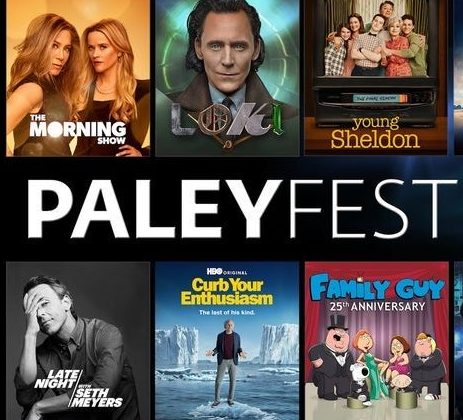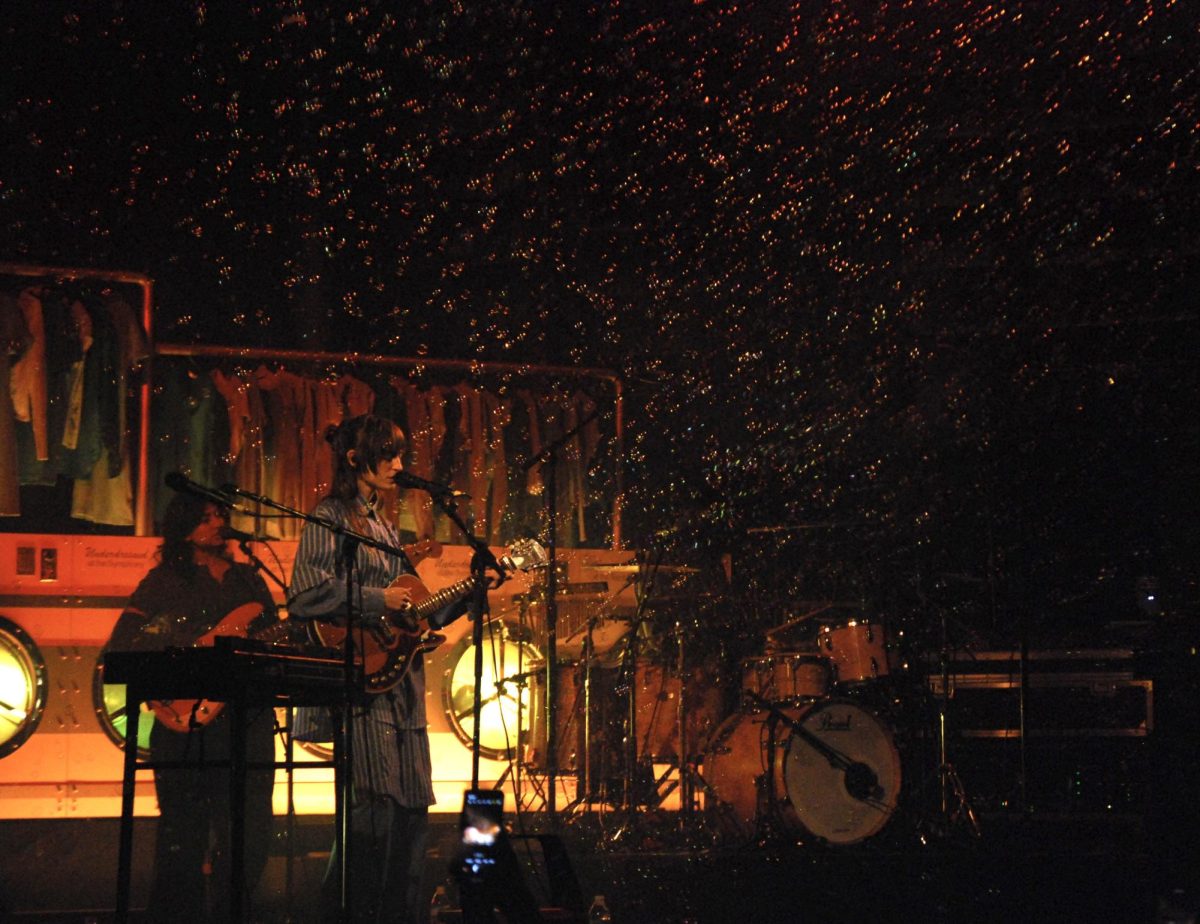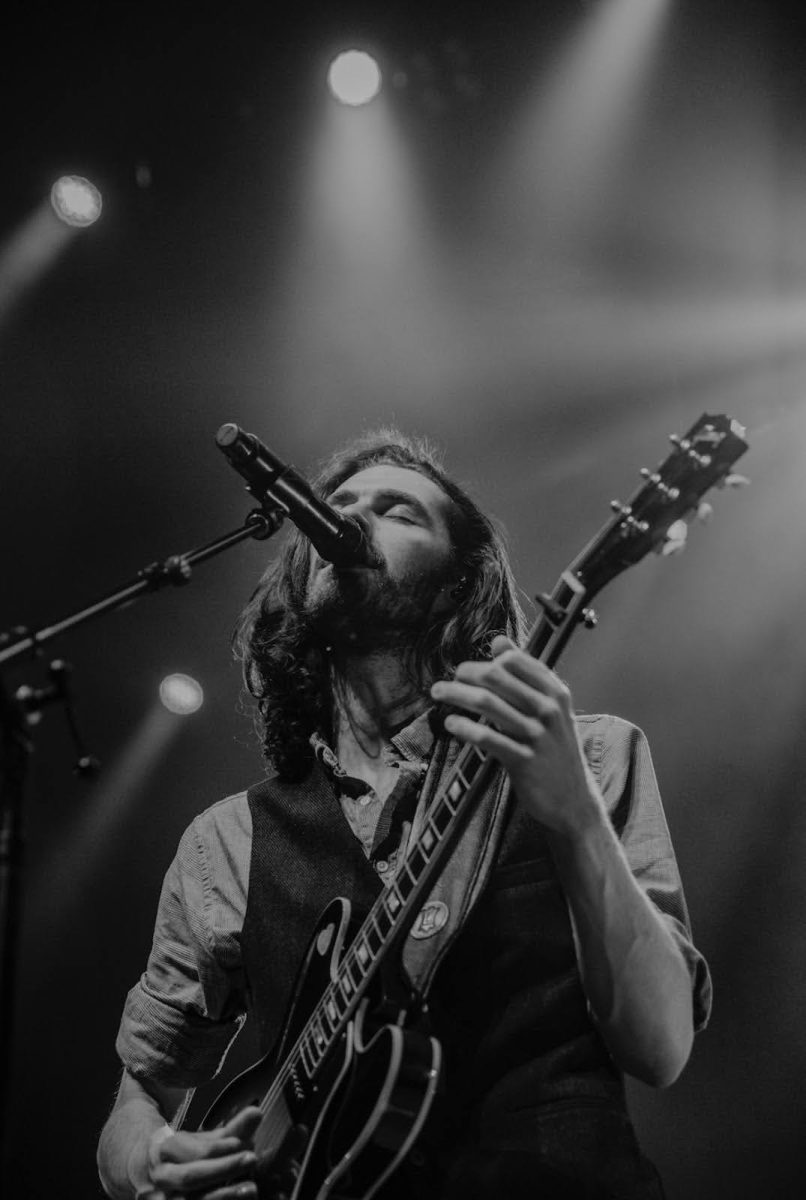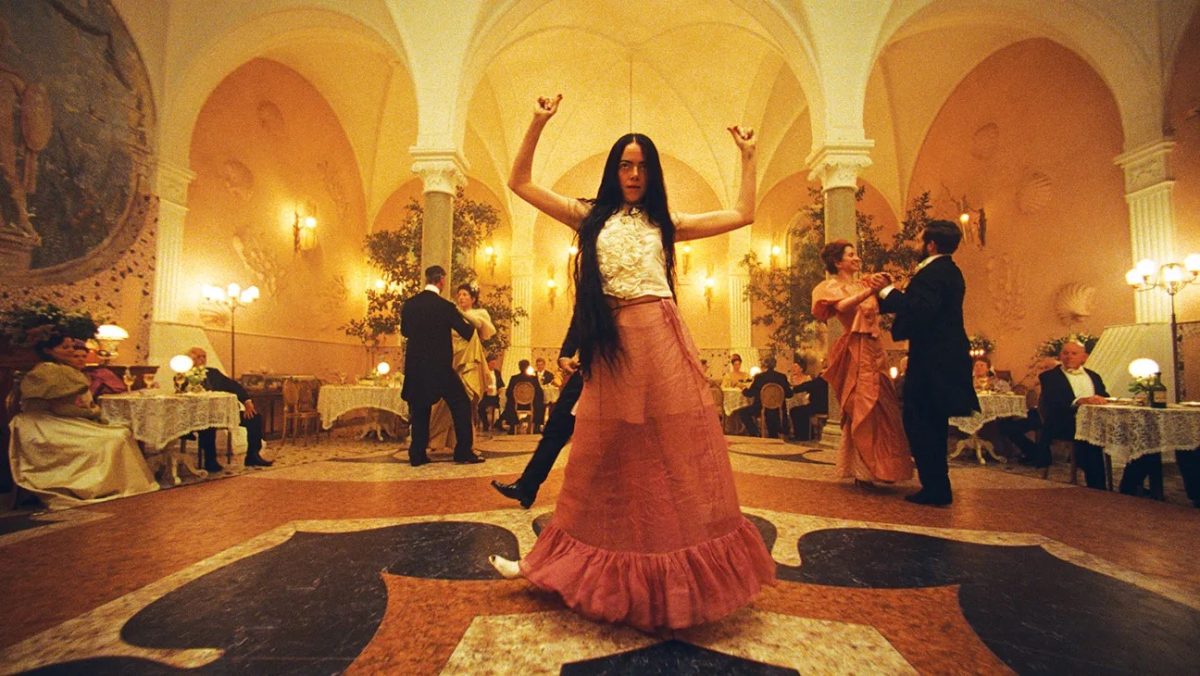Our picks for the 83rd Annual Academy Awards. Take note before you make your bets on Sunday.
The Choices For Best Picture
“Black Swan”
Don’t hold your breath, “Black Swan” won’t take Best Picture this year. But director Darren Aronofsky’s knack for tapping into our insecurities makes for an unsettling movie-going experience unlike any other.
“Black Swan” transcends logic as its simple premise disintegrates into a series of dark encounters: obsessive weight loss, self-mutilation and one of the most disturbing mother-daughter relationships in recent cinematic memory. Yet despite the Gothic theatrics, the film never loses sympathy for its characters, creating a surreal tapestry of both realism and melodrama.
Aside from Clint Mansell’s eerily pompous score and a triumphant performance by Natalie Portman, “Black Swan” is above all a statement of Aronofsky’s blaring importance in modern cinema. Like a burgeoning Stanley Kubrick, the director has honed his distinct voice, creating his first American classic and the best film of the year — an achievement that needs no validation.
—Ren Ebel
Associate Hiatus Editor
“The Fighter”
Director David O. Russell’s sports flick “The Fighter” could very well take the night’s biggest prize. The boxing film moves past the familiar underdog sports saga in its exploration of the relationship of two brothers, low-level boxer Micky Ward (Mark Wahlberg) and his half brother Dicky Edlund (Christian Bale), former boxer and current drug addict.
Wahlberg’s compelling performance was snubbed for the Best Actor nomination, but both Bale and Melissa Leo — who plays the pair’s mother — are expected to win their respective supporting actor/actress categories. Bale’s method acting and weight loss make Dicky a fully realized human being, while Leo’s performance balances humor with heartbreak. Despite her pushy nature, Leo is able to portray her as a caring mother. Combined with Russell’s direction, which provides the film with an essential sense of wit, “The Fighter” is one of the most compelling and entertaining films of the year, and a worthy Oscar recipient.
—Rusteen Honardoost
Staff Writer
“Inception”
“Inception,” like most blockbusters, received astronomical hype — but unlike most, it deserved the attention. Directed by Christopher Nolan and featuring a star-studded cast including Leo DiCaprio, Ellen Page and Marion Cotillard, (not to mention ’95 UCSD grad Dileep Rao), the film crafted a heroic journey through mind-bending dreams.
Unlike any of the other films in the category, “Inception” is a three-hour adrenaline rush that keeps you guessing, allowing you to watch shit blow up and think at the same time.
Nolan put the estimated $160-million budget to good use: With jaw-dropping special effects — buildings fold over like a piece of paper, Joseph Gordon-Levitt sprints down the ceiling of a chic hotel — and grandiose sets (catch the Geisel snow fortress?), the visuals are unmatched. But it’s not all on-screen flash — the conceptual gymnastics of the premise and the awe-inspiring scenery take a backseat to the best and oldest trick in the book: interesting storytelling.
—Marie Sbrocca
Contributing Writer
“The Kids Are Alright”
Nearly every year, Oscars pay tribute to the films that make strides in telling neglected gay narratives (e.g. “A Single Man,” “Milk,” “Brokeback Mountain”). As groundbreaking as they are, these films make gayness their primary focus, which is where “The Kids Are All Right” distinguishes itself: This isn’t a gay movie — it’s a family dramedy that happens to feature a pair of lesbian leading ladies.
The finesse with which director Lisa Cholodenko dodges that pitfall is what qualifies “The Kids Are All Right” for this year’s Best Picture award. With nuanced performances and subtle plotlines, it avoids “coming out of the closet” drama in favor of showing what a contemporary gay family looks like.
The comedy even has school pride: UCSD theater grad Rebecca Lawrence (MFA ’09) takes a bit part as a dreadlocked white girl who makes innuendos to sperm donor Mark Ruffalo while heaving around a basket of organic vegetables.
—Leila Haghighat
Senior Staff Writer
“The King’s Speech” – WILL WIN
A prince is thrown onto the British throne and finds help for his ongoing stutter so that he can rally the country together — sounds uplifting, doesn’t it? That’s exactly why “The King’s Speech” will likely take home the top prize come Sunday evening.
Colin Firth’s Bertie, aka King George VI, works with speech therapist Lionel Logue (Geoffrey Rush), forging a friendship that makes the film more buddy-movie than war-time drama. Amongst the silliness of humming, arm flailing and Firth’s constant failure, there lies a story of perseverance (and boy, does the Academy love perseverance).
Director Tom Hooper has the benefit of a pitch-perfect cast, which helps deliver a drop of history and a uniquely British experience, with all that signature dry wit. The film’s entertaining, inspirational and perfectly executed — making it a frontrunner over less feel-good choices like “The Social Network” and “Black Swan.”
—Kirsten Mauro
Staff Writer
“127 Hours”
Known mostly as “the film in which James Franco cuts his arm off,” Danny Boyle’s (“Slumdog Millionaire”) fast-paced docudrama “127 Hours” packs every frame with high-energy entertainment.
You read that right: Self-amputation is entertaining.
The cramped premise — mountain climber Aron Ralston (James Franco) gets lodged underneath a boulder, spending the titular length of time struggling to get out — should have been unfilmable. But Boyle makes it work with a heavy dose of stylistic adrenaline: Saturated flashbacks are cut between harrowing moments in the desert; A.R. Rahman’s organic, guitar-driven score weaves you through the plot, exploding at its climax; split screens whiz by at a frenetic pace.
Most importantly, Franco gives his most nuanced performance to date. In the midst of Ralston’s nightmare, he transitions from paralyzed fear to exhausted delirium and survivalist exaltation in a way that is so natural, so pure, it hardly feels like acting.
—Arielle Sallai
Hiatus Editor
“The Social Network” – SHOULD WIN
As calculated as its protagonist, “The Social Network” brings together the biggest talent in Hollywood — David Fincher’s subtle directorial hand, Aaron Sorkin’s cutting screenplay and Trent Reznor’s infectious score. Loaded with cinema’s brightest young actors, the film is less concerned depicting the semantics of big business than the alienation, hatred, insecurity and youth of today’s tastemakers. In the captain’s seat, Jesse Eisenberg secures his first Oscar nod as Facebook founder Mark Zuckerberg, spitting Sorkin’s lines with expert timing.
But in the pre-Oscar shuffle, the film somehow went from being a sure thing to an underdog. Despite “The King’s Speech”’s nomination lead, “The Social Network”’s sure wins in the directorial, screenplay and score categories bodes well for the drama. “The King’s Speech” may have a historical background, but “The Social Network” has the future of the Internet at its virtual fingertips.
—Angela Chen
Senior Staff Writer
“Toy Story 3”
With flawless animation and a tearjerker of a script, Pixar’s “Toy Story 3” had viewers laughing and crying as Buzz, Woody and the gang fought all the odds to get back to Andy from the clutches of a corrupt daycare.
Director Lee Unkrich avoided the sequel slump by maintaining the signature “Toy Story” charm. Despotic daycare leader Lots’O — voiced by southern-accented Ned Beatty — was the surprise antagonist bent on stopping Spanish Buzz and his amigos from fleeing Sunnyside Daycare.
The film succeeds where other nominees don’t, however, by forcing viewers of all ages to bawl their eyes out. The toys’ final moment with Andy was the poignant ending the saga needed — and a damn good excuse for a quick cry in the aisles.
The film continues Pixar’s blemish-free legacy, achieving a sense of warmth that most films — animated or not — fail to reach. So to all those who thought that “Up” was snubbed last year, stay tuned: This could be the animated breakthrough.
—Joshua Irvine
Contributing Writer
“True Grit”
After more than two decades of critical acclaim, the Coen brothers have become such an integral part of the Academy Awards that it’s easy to overlook just how powerful their filmmaking still is. Their adaptation of the darkly comic Charles Portis cult novel is a resilient reminder that the hardest working duo in filmmaking is still a force to be reckoned with.
Like their 2008 Best Picture winner “No Country for Old Men,” “True Grit” is another shoot-’em-up western with serious style, consisting of the stark cinematography and multidimensional characters that are so distinctly Coen. This time around they’ve replaced “No Country”’s meditative, score-less approach with thundering Protestant hymns, whip-cracking shootouts and one hilarious, ass-kicking grizzly of a U.S. Marshall played by the endlessly talented Jeff Bridges.
Everything about “True Grit” is rough and masculine. And with a string of quiet, subdued releases this Oscar season, it’s a welcome change of pace.
—Regina Ip
Senior Staff Writer
“Winter’s Bone”
Stuck in a perpetual, muted frost, “Winter’s Bone” seems at an immediate disadvantage to its flashier peers. But it’s remarkable in its realism — “Bone” lays bare the unsung hardships of struggling middle America, opting to strip its actors of heavy make-up and fancy lighting while exposing them to caked-on grime, dried blood, rocky terrain and a scorched, desolate countryside.
The bare-bones approach paid off — both Jennifer Lawrence (for her unflinching, hardnosed Dee) and John Hawkes (as the menacing and slight Teardrop) earned Academy nods. Though the indie flick may be the darkest “Best Picture” horse, its unflinching examination of human perseverance is the truest show of cinematic grit this year. In an Oscars race in which major plot conflicts include such white-collar problems as a billion-dollar lawsuit and a competition for a ballet lead, we could all use a touch of “Bone”’s reality.
—Neda Salamat
Senior Staff Writer
And the rest of the show . . .
Javier Bardem – “Biutiful”
Jeff Bridges – “True Grit”
Jesse Eisenberg – “The Social Network”
Colin Firth – “The King’s Speech”
James Franco – “127 Hours”
Colin Firth, in all of his hesitant, twitchy, stammering glory, will take home the prize for his role as King George VI in “The King’s Speech.”
While it might seem possible that young stars James Franco or Jesse Eisenberg could pull off an upset (for “127 Hours” and “The Social Network,” respectively), Firth has been unstoppable this awards season, claiming victories at the Golden Globes, the Critics’ Choice and the Screen Actors Guild Awards. The reason’s simple: Firth’s portrayal of the speech-impaired George VI is without a doubt the subtlest, most masterful display of acting talent this year.
The other nominees (Eisenberg and Franco in particular) put up strong performances, but none of them achieve the level of precise characterization and empathy that Firth exhibits in “The King’s Speech.”
—Andrew Whitworth
Staff Writer
 Best Actress In a Leading Role
Best Actress In a Leading Role
Annette Bening – “The Kids Are Alright”
Nicole Kidman – “Rabbit Hole”
Jennifer Lawrence – “Winter’s Bone”
Natalie Portman – “Black Swan”
Michelle Williams – “Blue Valentine”
Long before “Black Swan” hit screens, Natalie Portman’s transformation was all over the Internet. A year of regimented ballet lessons, the dramatic weight loss — it all seemed overhyped, and it was still difficult to imagine Queen Amidala tackling the kind of dark, deeply personal roles we’ve come to expect of director Darren Aronofsky.
Yet from the opening scenes of the film, it is immediately clear just how much Portman lost herself in the performance. She captures every minute detail of ballerina Nina Sayers’ complexity — her fragility, her fear, that deep-lingering evil — and the effect is truly unnerving. By harnessing an emotional range well beyond her years, Portman navigates warped mother-daughter interactions, giddy high-school joy and disturbing animal ferocity to a frighteningly real degree. The protagonist and villain are such a stark contrast that at times, it’s easy to forget they’re the same person.
Like Heath Ledger in “The Dark Knight,” Natalie Portman pushes the craft in brave new directions, gracing audiences with the thrilling experience of witnessing her full metamorphosis. Her performance in “The Black Swan” is one of those rare, instantly iconic moments in cinema, heralding the definitive presence of a great actress.
—Ren Ebel
Associate Hiatus Editor
Best Directing
Darren Aronofsky – “Black Swan”
David O. Russell – “The Fighter”
Tom Hooper – “The King’s Speech”
David Fincher – “The Social Network”
Joel and Ethan Coen – “True Grit”
David Fincher (“Fight Club,” “Zodiac”) — long overdue for a Best Directing Oscar — delivered a tour de force with “The Social Network.” With a relentless grasp on every aspect of the film, Fincher didn’t delete a word from Aaron Sorkin’s dense screenplay; instead, he demanded perfection, forcing his actors to nail the film’s now-signature fast-paced dialogue. The first scene of the film, in particular, took a whopping total of 99 takes.
Others did fine work this year, too. Russell’s “The Fighter” and the Coen brothers’ “True Grit” are also indebted to their directors, but neither stand a chance against Fincher. The only real competition comes from Darren Aronofsky and his moody “Black Swan,” though it may prove too bloody for the Academy. (That cinematic aesthetic will likely be imitated in film schools for years.) Fincher, however, shoots for exacting perfection in “The Social Network” and for that, he should be awarded.
—Tanner Cook
Contributing Writer
Best Adapted Screenplay
“127 hours”
“The Social Network”
“Toy Story 3”
“True Grit”
“Winter’s Bone”
Regardless of how you feel about Jesse Eisenberg, the stylish cinematography or Trent Reznor’s brooding score, “The Social Network”’s screenplay — written by Aaron Sorkin — is nothing short of a masterpiece. What’s more, Sorkin, who also wrote outstanding screenplays for “A Few Good Men” and “Charlie Wilson’s War,” is long overdue for an Oscar victory. The other nominees are strong: “True Grit” and “Winter’s Bone” would ordinarily stand a strong chance, but sharp dialogue and intense personal interactions make “The Social Network” a shoo-in for the award. The film’s strength is a testament to the power of Sorkin’s writing.
—Andrew Whitworth
Staff Writer
Best Original Screenplay
“Another Year”
“The Fighter”
“Inception”
“The Kids Are All Right”
“The King’s Speech”
Veteran screenwriter David Seidler took almost as long as his protagonist, Bertie, to find his voice, but the resulting script is Oscar bait. “The King’s Speech” showcases tongue-in-cheek humor comparable to Sorkin’s witty “The Social Network” (the frontrunner in the adapted category) and was a painstaking 25 years in the making. The script’s an old Oscar favorite: a story of trying, lifelong hardship miraculously overcome; the fact that British royalty’s featured front and center is just an added bonus. Though Seidler doesn’t have the established lead over his competitors that Sorkin does, his film’s late surge in popularity should only bolster the writer’s edge — making him damn near impossible to dethrone.
—Neda Salamat
Senior Staff Writer
Best Actor In a Supporting Role
Christian Bale – “The Fighter”
John Hawkes – “Winter’s Bone”
Jeremy Renner – “The Town”
Mark Ruffalo – “The Kids Are Alright”
Geoffrey Rush – “The King’s Speech”
After years of abusing his body more than a bulimic school girl, Christian Bale’s method acting is finally churning out Oscar gold. Bale was unrecognizable as scrappy former pro-boxer Dicky, sporting darkened teeth, sweat-coated garb and an emaciated physique. His performance is electric: loudmouthed, stubborn, bleary-eyed and spoken in an affected lisp, his Dicky is miles away from the aloof Batman. The clincher is Bale’s interpretation of Dicky’s writhing, pained meth withdrawals on a prison bed. The retired boxer recovers quickly thereafter, though the same can’t be said of his awed audience.
—Neda Salamat
Senior Staff Writer
Best Actress In a Supporting Role
Amy Adams – “The Fighter”
Helena Bonham Carter – “The King’s Speech”
Melissa Leo – “The Fighter”
Hailee Steinfeld – “True Grit”
Jacki Weaver – “Animal Kingdom”
This year’s Best Supporting Actress has three favorites in for the running, with one of them only narrowly outshining her co-star.
Fourteen-year-old Hailee Steinfeld’s breakthrough performance in “True Grit” was no supporting role, but her youth leaves her out of the running, while Aussie nominee Jacki Weaver’s “Animal Kingdom” is too under-the-radar for the Academy.
Amy Adams is back for a third grab for her feisty performance in “The Fighter,” but will lose in a face-off against co-star Melissa Leo, who has swept most of the prizes this season as the boxer’s hellcat mom. Leo’s latest campaigning foibles (she designed her own Oscar ads), however, might have undone her in this popularity contest, paving the way to victory for second-time nominee Helena Bonham Carter as Queen Mum in “The King’s Speech,” the most nominated film of the night.
But whatever faux pas she may have committed, it would be a crime to take away the gold from Leo’s dynamic performance come Sunday.
—Krystle Wong
Staff Writer
The Snubs
Some of the best films and performances of the year were unfortunately left out of the show. Here are the best of the forgotten:
Jim Carrey – Best Actor, “I Love You Phillip Morris”
Ryan Gosling – Best Actor, “Blue Valentine”
Greta Gerwig – Best Actress, “Greenberg”
Barbara Hershey – Best Supporting Actress, “Black Swan”
Christopher Nolan – Best Director, “Inception”
Martin Scorsese – Best Director, “Shutter Island”
“Blue Valentine” – Best Picture
“Shutter Island” – Best Picture
“The Town” – Best Picture
“Waiting For Superman” – Best Documentary Feature
“Catfish” – Best Documentary Feature
Daft Punk – Best Original Score, “Tron: Legacy”
James Murphy – Best Original Score, “Greenberg”






















